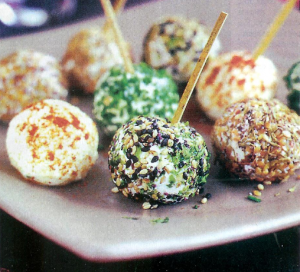The fifth session of UNESCO’s Intergovernmental Committee, took place in Nairobi, capital of the Republic of Kenya, from 15 to 19 November 2010 at the Kenyatta International Conference Centre. The Chairperson of the fifth session as Dr Jacob Ole Miaron of Kenya and Vice-Chairs were from Cyprus, Croatia, Republic of Korea and Oman.
The committee discussed issues that concerned the safeguarding of the Intangible Cultural Heritage of Humanity. One of the issues, topics, inscribed in the committee’s list was the Mediterranean diet.

The proposal was put forward by 4 Mediterranean countries: Greece, Italy, Spain and Morocco, with the following description:
“The Mediterranean diet constitutes a set of skills, knowledge, practices and traditions ranging from the landscape to the table, including the crops, harvesting, fishing, conservation, processing, preparation and, particularly, consumption of food. The Mediterranean diet is characterized by a nutritional model that has remained constant over time and space, consisting mainly of olive oil, cereals, fresh or dried fruit and vegetables, a moderate amount of fish, dairy and meat, and many condiments and spices, all accompanied by wine or infusions, always respecting beliefs of each community. However, the Mediterranean diet (from the Greek diaita, or way of life) encompasses more than just food. It promotes social interaction, since communal meals are the cornerstone of social customs and festive events. It has given rise to a considerable body of knowledge, songs, maxims, tales and legends. The system is rooted in respect for the territory and biodiversity, and ensures the conservation and development of traditional activities and crafts linked to fishing and farming in the Mediterranean communities which Soria in Spain, Koroni in Greece, Cilento in Italy and Chefchaouen in Morocco are examples. Women play a particularly vital role in the transmission of expertise, as well as knowledge of rituals, traditional gestures and celebrations, and the safeguarding of techniques.”
The decision of the committee is documented as decision 5.COM 6.41 and it was based among others on the following 5 criteria:
● R1: The Mediterranean diet is a set of traditional practices, knowledge and skills passed on from generation to generation and providing a sense of belonging and continuity to the concerned communities;
● R2: Its inscription on the Representative List could give broader visibility to the diversity of intangible cultural heritage and foster intercultural dialogue at regional and international levels;
● R3: The nomination describes a series of safeguarding efforts undertaken in each country, together with a plan for transnational measures aimed at ensuring transmission to younger generations and promoting awareness of the Mediterranean diet;
● R4: The nomination is the result of close cooperation of official entities in the four States, supported by the active participation of communities, and it includes evidence of the latters’ free, prior and informed consent;
● R5: The Mediterranean diet has been included in inventories of intangible cultural heritage in the four States concerned and will be included in a transnational inventory of the Mediterranean that is underway.














{ 0 comments… add one now }